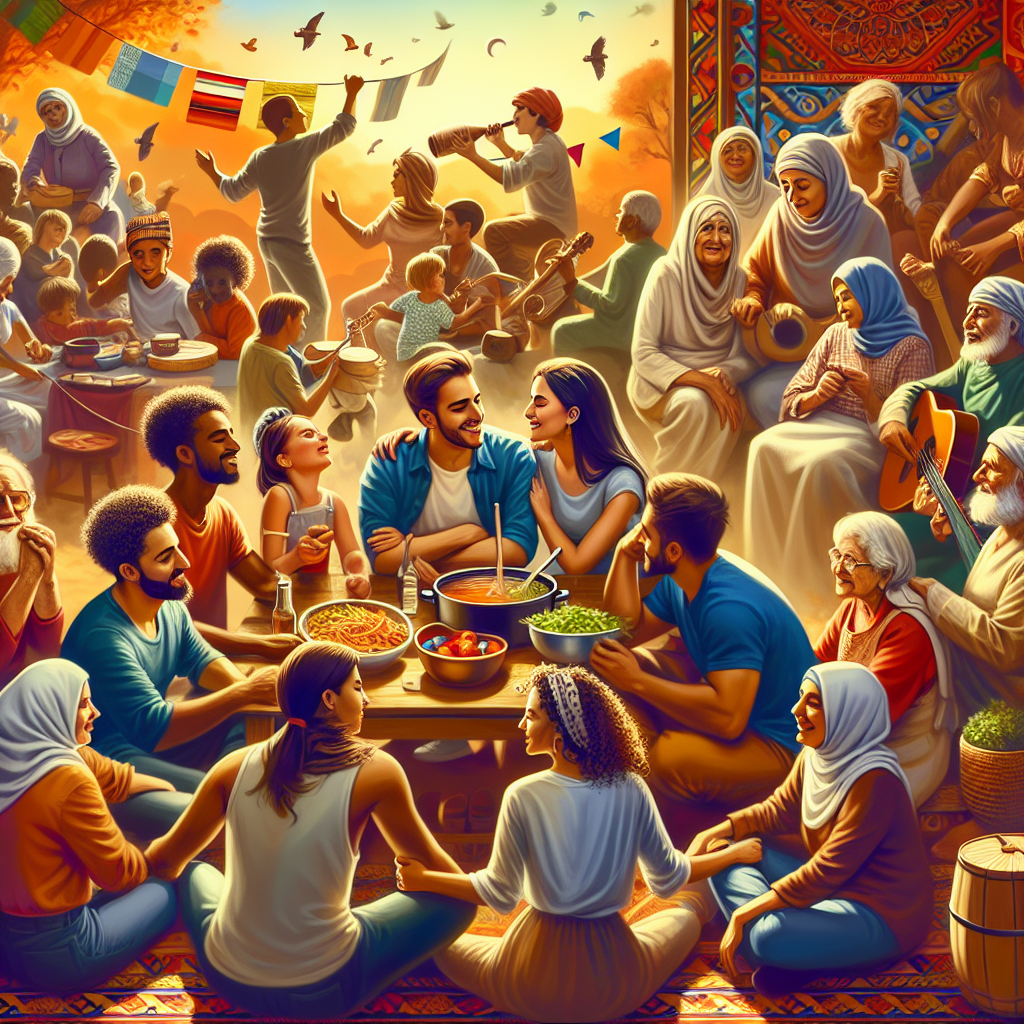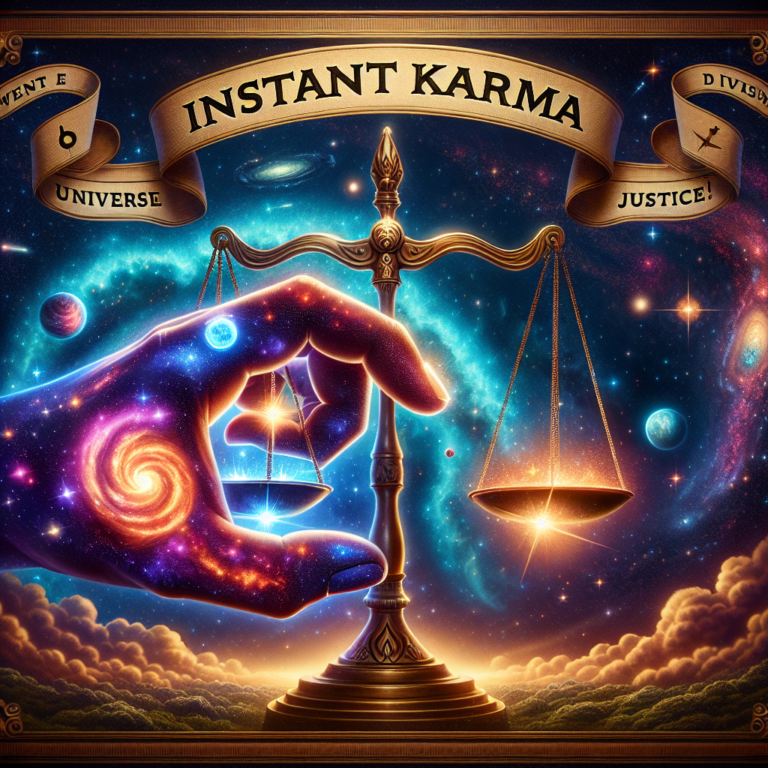Family Karma: A Cultural Journey Through Friendship and Family Dynamics
The colorful tapestry of family dynamics and friendships often weaves a rich and complex narrative, and nowhere is this more vividly depicted than in the reality television series "Family Karma." Premiering in 2020, the show offers viewers an intimate glimpse into the lives of a group of Indian-American friends from Miami, navigating their personal relationships while remaining rooted in their rich cultural heritage. This article will explore the cultural significance of "Family Karma," the familial bonds that are central to the narrative, and how the show addresses broader themes like identity, tradition, and the intersection of old-world values with new-world lifestyles.
Cultural Significance
At its core, "Family Karma" is not just a reality show; it is a cultural movement. The series is significant because it is the first reality show featuring an all-Indian cast in the United States. It represents the voices of a community that often goes underrepresented in mainstream media. The experiences of the characters resonate with many viewers, particularly those from immigrant backgrounds, who can relate to the daily struggles of balancing traditional family expectations with modern societal pressures.
The show highlights the importance of community within the Indian diaspora in America. It delves into the customs, rituals, and festivals that are integral to Indian culture, providing a platform for viewers to learn more about these traditions. Whether it’s a wedding, a religious festival, or a family gathering, "Family Karma" uses these events to celebrate the richness of Indian culture while showcasing the humor and challenges that come with cultural integration and adaptation.
Friendships at the Forefront
Friendship is one of the cornerstones of "Family Karma." The cast members share a deep history, with many of them having grown up together. Their bonds are tested as they navigate interpersonal conflicts, romantic relationships, and family expectations. Unlike many reality shows that thrive on drama and conflict, "Family Karma" brings a refreshing perspective by emphasizing the support and love these friends provide one another.
The friendships depicted in the series often mirror family dynamics, with characters facing conflicts akin to those one would encounter within a family. Viewers see how loyalty, understanding, and communication can help resolve issues. In a suite of relatable moments, the characters lean on each other during significant life events—be it a career crossroads, relationship struggles, or family dilemmas—showcasing how friendships can be as vital as familial bonds.
Family Dynamics
"Family Karma" offers an authentic look at the complexities of family life within the Indian-American experience. It examines how traditional roles and expectations can clash with the aspirations of younger generations. Each cast member embodies unique family dynamics that reflect the struggles faced by many immigrant families: the tension between preserving cultural heritage and embracing individuality.
For instance, cast member and entrepreneur Vishal Parikh often grapples with the expectations placed on him as a son. His relationship with his parents plays a pivotal role in his character development, illustrating the pressure many feel to uphold their family’s honor and traditions. This dynamic is further complicated by romantic relationships, particularly when partners come from different cultural backgrounds, highlighting the challenges of building families that honor multiple heritages.
The series shines a spotlight on the role of family in shaping personal identity. Through various storylines, the characters confront issues like mental health, marriage, and generational conflicts, all while remaining respectful of their cultural heritage. The honest portrayals encourage conversations among viewers about the significance of these topics within their own lives and communities.
Humor and Heart: The Balancing Act
While "Family Karma" tackles serious themes, it balances these with humor and heart. The cast’s vibrant personalities, comedic timing, and playful interactions often lighten heavier moments. This balance is crucial—it allows viewers to engage with significant issues while also enjoying the lighter side of life.
Humor serves as a coping mechanism for the characters as they deal with life’s hurdles. It is not uncommon to see one character’s light-hearted jab at another’s over-the-top family expectations. Such moments offer comedic relief while simultaneously shedding light on the realities these individuals face. In doing so, "Family Karma" creates a relatable narrative where laughter coexists with tears, joy, and conflict.
Empowerment and Representation
Importantly, "Family Karma" empowers its cast members and their stories. The series creates space for individuals to embrace their identities unapologetically. This authenticity is empowering for audiences, particularly young adults navigating their cultural identities in an increasingly multicultural society. The show challenges stereotypes and invites viewers to see Indian-Americans as multi-dimensional individuals, with dreams, fears, and friendships just like anyone else.
By representing various socio-economic backgrounds, personal aspirations, and emotional experiences, "Family Karma" holds a mirror to the complexities of modern life, urging audiences to reflect on their values and challenges. The series encourages viewers to celebrate their heritage while also embracing who they are as individuals in a diverse society.
Conclusion
"Family Karma" is more than just a reality TV series; it is a cultural journey that intertwines friendship, family dynamics, and individual identity. The show’s authentic representation of the Indian-American experience contributes to meaningful conversations around cultural heritage, familial obligation, and personal empowerment. As it continues to unfold, it provides a platform for audiences to engage with universal themes through a culturally specific lens, making it a significant work in contemporary television.
FAQs
Q1: What is the premise of "Family Karma"?
A1: "Family Karma" follows a group of Indian-American friends from Miami as they navigate their friendships, romantic relationships, and family dynamics while staying connected to their cultural heritage.
Q2: When did "Family Karma" first air?
A2: "Family Karma" premiered on March 8, 2020.
Q3: Is "Family Karma" a reality show?
A3: Yes, "Family Karma" is a reality TV series featuring real individuals and their genuine experiences.
Q4: What themes does "Family Karma" explore?
A4: The show explores themes such as cultural identity, family dynamics, friendship, and the balance of traditional values with modern influences.
Q5: Are the cast members related?
A5: While some cast members have familial ties, others are close friends who form a tight-knit community, reflecting typical dynamics in immigrant families.
Q6: Why is "Family Karma" significant?
A6: "Family Karma" is significant because it features an all-Indian cast, providing representation for a community often underrepresented in mainstream media, while addressing relatable themes about culture, family, and friendship.
It seems like your message got cut off. Could you please provide more details or specify what you’re looking for? Whether it’s a writing prompt, a question, or something else, I’m here to help!, #Family #Karma #Cultural #Journey #Friendship #Family #Dynamics, #Family #Karma #Cultural #Journey #Friendship #Family #Dynamics, 1736542167, family-karma-a-cultural-journey-through-friendship-and-family-dynamics





